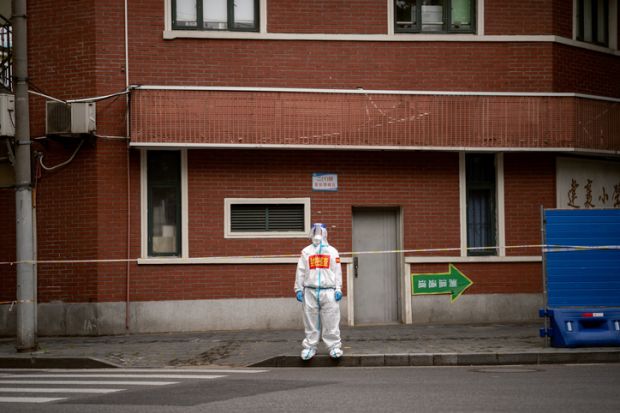In a rare move, students at China’s top institution publicly protested against its strict lockdown measures – signalling growing discontent with officials’ handling of the pandemic.
Earlier this week, hundreds of students at Peking University left their dormitories, tearing down a metal wall and yelling at administrators, according to media reports.
The development comes as Beijing doubles down on its zero-tolerance Covid-19 policy. Even as other countries have loosened pandemic restrictions, China has kept in place strict immigration restrictions for overseas students and travellers. At home, it has continued mass testing and enforced hard lockdowns, with videos purporting to show authorities barricading residents inside their homes in some cases.
For university students living in cramped dormitory rooms and sharing bathroom and cooking facilities, the situation has been especially bad. A number of institutions banned students from accepting meal deliveries and prevented them from leaving campuses – with reports on social media claiming shortages of basic necessities as well as mental health issues.
At Peking University, in particular, controls reportedly included keeping students in their dormitories for weeks, requiring them to take daily Covid-19 tests and book shared bathrooms, and even barring them from showering.
But until now, student complaints have largely been confined to social media.
Kerry Brown, director of the Lau China Institute at King’s College London, said that the protests may not bode well for Chinese leaders.
“University students, the future elite, going on protests is something that historically has ominous portents for China; campuses in Beijing were where the 1989 uprising first started,” he said.
Already, Chinese censors have erased videos and comments about the incident from social media. But before they could remove posts on the platform Weibo, users reportedly praised protesters, making comparisons with the takedown of the Berlin Wall.
Professor Brown noted that Chinese authorities were not alone in facing student “rage”; Beijing’s “remorseless” pursuit of a zero-Covid strategy has resulted in the “same quandary” faced by other governments: sacrificing freedoms of youth to protect a more physically vulnerable elderly population.
“Chinese institutions have now caught up with British and American universities lambasted by their students over imposing lockdowns…It’s evidently a universal phenomenon, whether you are under a communist or non-communist system,” he said.
But unlike their Western counterparts, Chinese institutions – and authorities – face higher stakes when they are challenged by students, he said.
“This is not a good group to pick a major fight with. Students everywhere can produce unpleasant social backlashes. So this news, if accurate, is something the central authorities will need to work out how to respond to.”
Professor Brown warned that “not responding is not an option”. Beijing must either “pump up the national sacrifice for a greater gain message or relax their policies”.
“The latter looks unlikely at the moment. The former is unlikely to work that quickly – a very uncomfortable and awkward situation for any government to be in.”
After the protests, university heads reportedly met with student representatives and agreed to remove the sheet-metal barrier.
Times Higher Education has contacted Peking University for comment.






